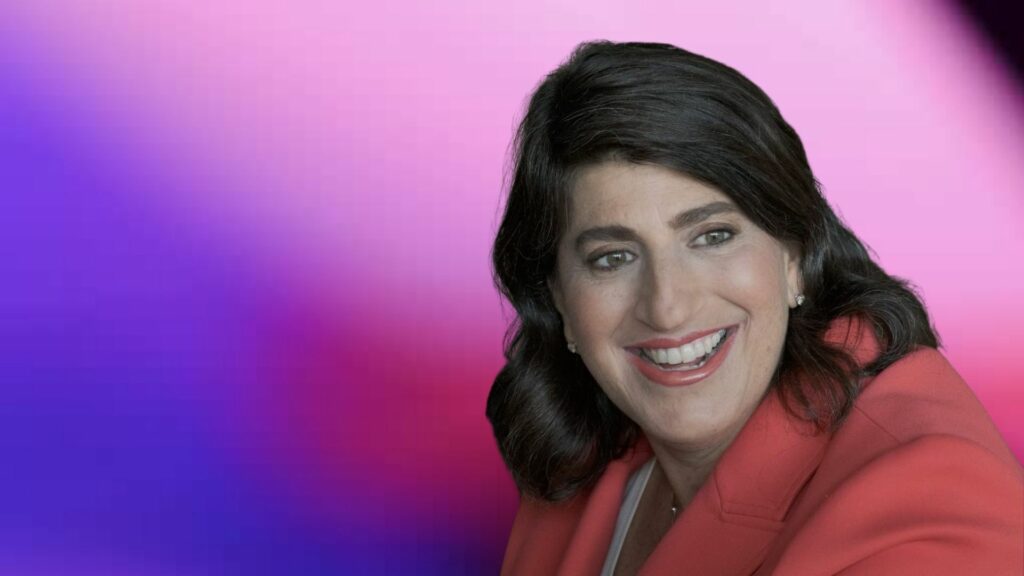Women, money and power: why more women are considering careers in financial planning

Often, financial planner Laura Mattia feels like a professional psychologist.
Spanning all different life stages and circumstances, her clients come to her with a variety of questions. Their stories are all different, but they’re all seeking the same thing: guidance and direction.
‘Can I retire? Should I sell my business? Should I buy a new home? What if I decide to take my entire family on a trip to Europe? I’m thinking about adopting.’
But while she did pursue an undergraduate degree in psychology, her decision to get her MBA and head into the financial advisory world proved to be a people-centric profession all the same.
“You find that you can really make a difference in people’s lives,” says Mattia.
Often, money will be an afterthought in a client conversation. The real discussion delves into life priorities, goals, even dreams.
“Finance is just a tool, it’s not the end goal. Most people are not looking to die with a big pile of money. They’re looking at acquiring and making money so that they can do the things that they want to do in their lives,” says Mattia.
Now with over 30 years of experience in the field, Mattia fills her time as an educator, speaker, author and Principal Financial Planner of Atlas Fiduciary Financial, LLC.
There are some fairly distressing differences between the average female financial advisor compared to the average male financial advisor. According to the Certified Financial Planner Board of Standards:
- Women earn $32,000 less in annual income compared to male counterparts, despite having similar experience and ownership status.
- Just 39 percent of women own all or part of their own practice compared to 63 percent of men.
- Roughly 79 percent of women agree that there is some degree of unwelcomeness toward women in the office culture of financial firms.
“People don’t necessarily think of women in finance all the time,” Mattia says. “They usually think, oh, finance person – it’s a man. So how do we make sure that people recognize and understand, no, we’re not the secretary, we’re, actually somebody that you should respect and listen to because we’ve been trained?”
In the four short years that have passed since Mattia’s book “Gender On Wall Street: Uncovering Opportunities For Women In Financial Services” was published, she says she is seeing more women decide to enter into the financial arena. Along with more supportive networks and a heightened awareness about implicit bias within the industry, Mattia partially credits the shift to the emergence of more boutique firms.
“In these smaller firms, women are excelling because in a smaller environment, they’re able to demonstrate their competency much better than in a larger organization where everybody’s just jockeying for position. In a smaller firm, there’s no room for people being in a position just because they go play golf with the boss,” explains Mattia. “You have to produce.”
A self-described lifelong learner, Mattia is a strong advocate of using continued education to combat long standing unconscious gender biases.
“I think the more people start seeing women in the profession, the more it’s going to be accepted,” says Mattia. “But in the meantime, we have to just recognize that (bias) potentially exists, therefore we need to demonstrate our competency, hence why we need to be educated.”
Reflecting on her MBA journey, she says business school built invaluable credibility in an industry that’s notoriously male-dominated.
“It was definitely one of the best decisions I ever made because the experience and the training and the education that you get with an MBA is not like any other, it goes beyond just developing the analytical skills, which was of course very important,” she says. “It also trained us in the qualitative aspects of working with people, collaborating.”
A dynamic financial professional is one who stays curious and interested.
“Just learning new things is always good,” says Mattia. “Things are constantly changing in the finance arena, there’s always new products, new strategies, new ideas. And so having that at your fingertips, where you can explain to your client the pros and cons of their different options, it gives you a lot of credibility and it builds trust. In the end, to be good in this business, you need to develop trust with your client.”
So for those considering a career shift into financial advisory, what’s the key ingredient to success?
“Specifically in financial advisory, while it’s very important to have all the analytical skills and to be able to work with numbers and understand what’s going on in the economy and the markets, that’s really not where you’re going to shine,” explains Mattia. “Where you’re going to shine is in your relationship building with your client.”
She suggests developing strong listening skills, and demonstrating compassion and empathy at every turn.
Her top advice for those planning their future careers in financial services?
Honing in on confidence, letting go of unmanageable expectations, and supporting other women.
1. Tune in to self worth.
As it turns out, her psychology background has actually helped her during moments of career adversity to understand that the rejection of her or her work has had nothing to do with her.
“Really know who you are and what you are contributing,” Mattia says.
“The places that I tripped up the most was when I listened to people tell me who they thought I was or who they thought I should be.”
2. Let go of the desire to be “liked” by everyone.
“Everybody’s not going to love you,” Mattia asserts. “The minute you start being competitive and being successful, there are going to be people that don’t like you for all kinds of reasons, there’s going to be people out there that are not going to be supportive of you.”
3. Encourage other women to claim their financial power.
“Never be afraid to ask questions, ask lots and lots of questions. Know that you’re smart enough to figure it out, but just keep asking those questions and don’t let somebody shut you down because you need to know what’s going on.”
For more on breaking into finance, see our recap of our talk on
Breaking into FinTech, hosted in partnership with our friends at Emory Goizueta

Photo from Michelle Henderson







